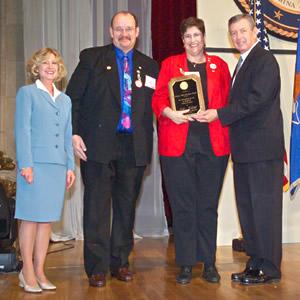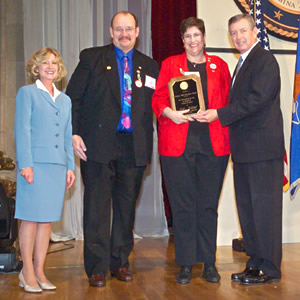Archival Notice
This is an archive page that is no longer being updated. It may contain outdated information and links may no longer function as originally intended.
Identity Theft Resource Center | National Crime Victim Service Award
Team Members: Jay Foley; Linda Foley
San Diego, California
Founded in 1999 by a victim of identity theft and her husband, the Identity Theft Resource Center serves as an information repository and direct services program for victims, consumers, businesses, governmental agencies, law enforcement, legislators, and the media.
The small staff—two full-time and two part-time employees—and the center's pool of volunteers receive 200–250 telephone calls and e-mails from victims per week, and the center's Web site averages 45,000–60,000 visits per month. Its resources include a score of self-help guides, verified scam alerts, and information for law enforcement, businesses, the media, and consumers. It also responds to about 30 interviews each month from local and national media.
The center has served as a technical advisor to state and federal legislators and governmental agencies, and its staff has testified at numerous state and federal legislative and governmental hearings. Among its legislative advocacy successes are California laws that give victims access to credit application and account information on accounts opened in their names, outlaw information trafficking, and clear victims' records more rapidly and effectively.
An education and outreach component advises and trains law enforcement officials, and a corporate awareness program includes a self-assessment and remediation handbook for businesses. The center has participated in a number of state and federal task forces, including those established by the Federal Trade Commission, the Social Security Administration, and the Federal Bureau of Investigation. The center serves as a regular advisor to the California Office of Privacy Protection.
The center's trained volunteers, many of them victims themselves, enable it to provide emotional support as well as information to identify theft victims.



